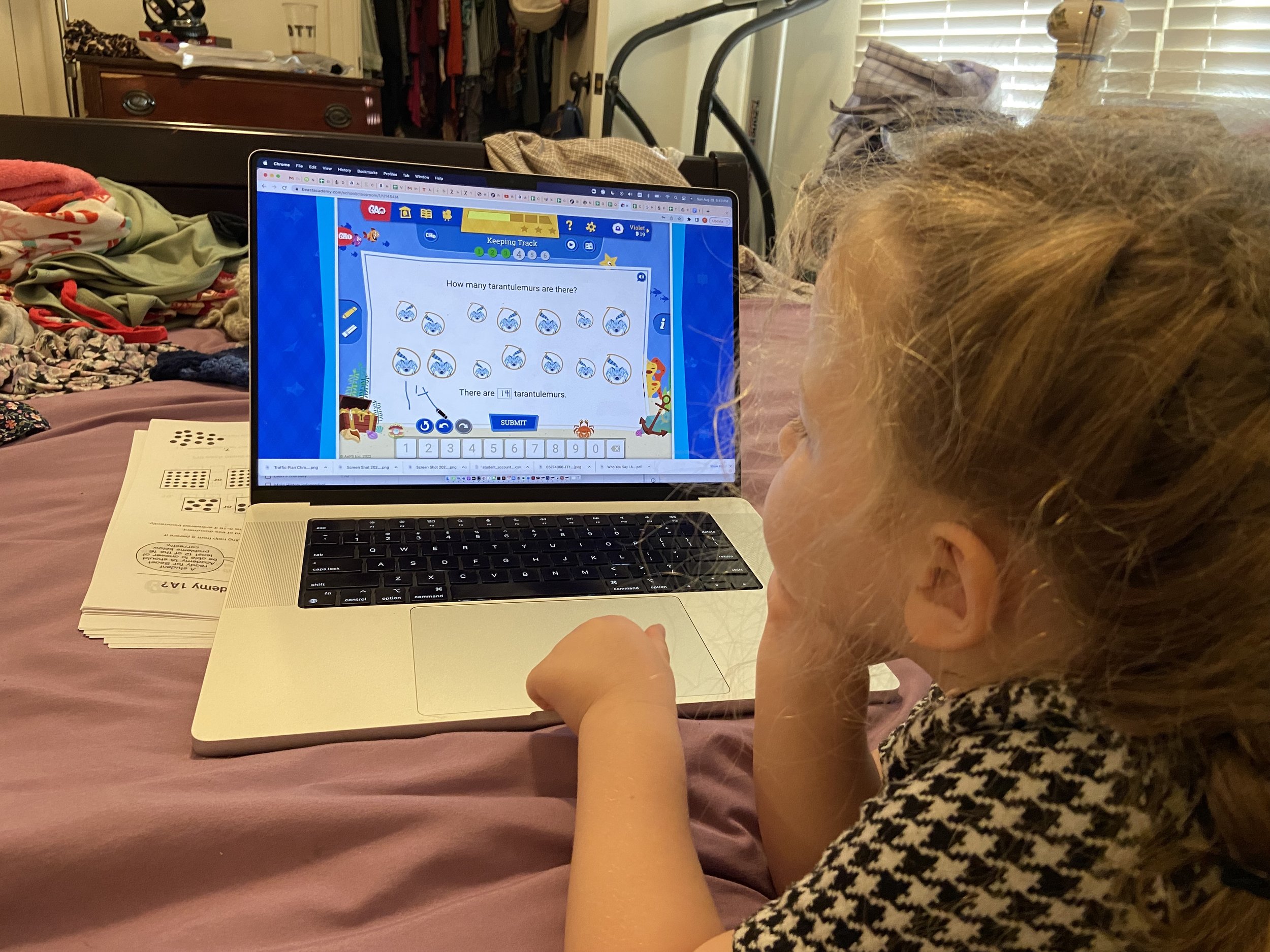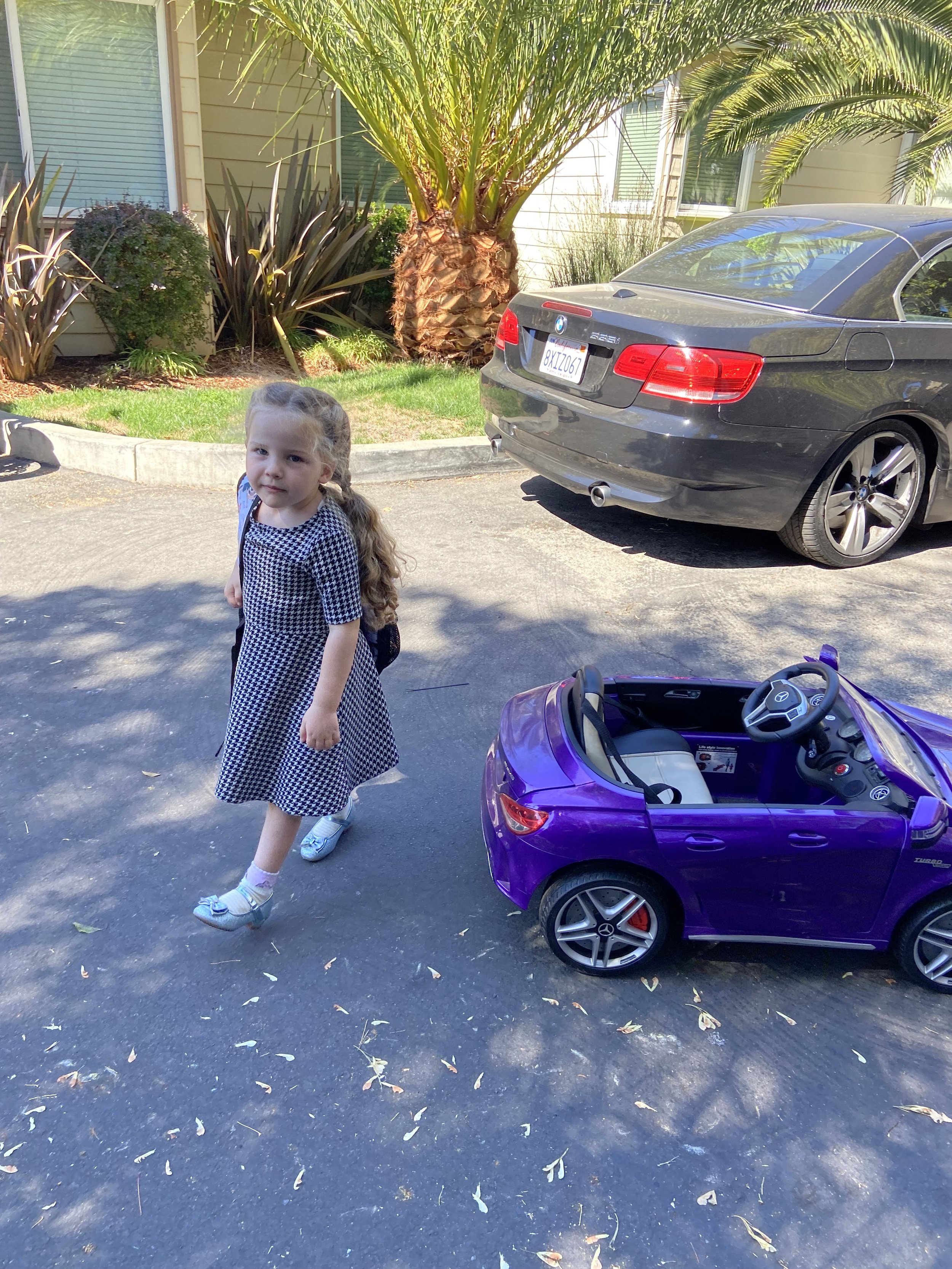They Still Need You
/Ten years ago, when Jocelyn, my oldest, was about to enter kindergarten, all my playgroup friends talked excitedly about which school they picked and which friends they hoped were their kids’ classmates. But I remember dreading that my little girl would be in a classroom learning all kinds of fun things without me! I was aghast that parents couldn’t drop into the classroom any time they wanted but should sign up to volunteer. Mostly I didn’t want to miss out on hearing my little learner sound out that first word in a Bob Book or figure out how to add on her fingers. I wanted to witness those “Oh! moments,” the exciting and important milestones of learning.
As my tutoring schedule filled up in the evenings, I realized I would hardly see Jocelyn during the week. That was the deal-breaker – we decided to homeschool. I felt like such a rebel. I enrolled her in various classes for her age group and taught some classes myself. I taught her multiplication in kindergarten because math was my favorite, and we celebrated together when she learned to read! I got to be her teacher for nine years and see almost all of those precious milestones! I feel so lucky.
This year Jocelyn’s a Sophomore at Archie Williams. High school is a whole other ball game; it’s much easier to be involved in preschool and elementary school. Now I have to be even more intentional about it. I make a point to attend parent night and discuss each teacher’s approach and expectations. I check three different apps to help her keep track of her efforts. I sign up to chaperone events before all the spots are taken. And I ask other parents about the school’s offerings… all while carefully determining how involved she actually wants me to be; her independence is the goal, after all.
Tutoring math over the years, I’ve met hundreds of parents who throw up their hands at their child’s advanced math homework. “I can’t remember this stuff; can you help him?” Tutoring makes a huge difference, but nothing helps a child more than having mom or dad in their corner. I’ve learned that the more involved parents are in their child’s education, the more engaged children are.
Now that we have a school, our parent community is eager to be involved. They chat with us at drop off and pick up, voluntarily chaperone field trips, bring treats for the class, read up on our history topics and science projects on the website, and visit the classroom to hear student presentations. It’s certainly easier in our small community, but, no matter where your child is enrolled, your involvement is invaluable. Schools may not have the manpower to usher you in, and teachers may not have the bandwidth to approach you, so be proactive. No one knows your child like you do, and no one else is nearly as invested in his or her success.
This year, our youngest started kindergarten. Many of yours have started new schools too. In the classroom and at home, I plan to celebrate her accomplishments, teach her as much as I can and advocate for her success. It’s going to be so fun! I wish the same blessing on you this school year.
Learn with your child
Nothing validates learning more than mom’s or dad’s sincere interest. Learning what your child is learning means he is not alone on the journey. This shared experience lends deeper understanding and grows your relationship.
Chat about school topics at dinner.
Find a documentary and watch together.
Do your child’s homework on another sheet of paper at the same time…or try to!
Ask questions, recreate experiments, brainstorm projects.
Share about when you learned the same thing as a child.
Advocate for your child
A little bit of effort can make your child even more successful at school.
Arrive 15 minutes early to observe and listen before pick up.
Look at classroom photos with your child and ask about each activity.
Talk to each teacher.
Learn the classroom outcomes and how you can supplement at home.
Find out what the snack/lunch menu and how well your child eats.
Get to know the school’s discipline policies and suggest tips/tricks that work at home.
Let the teachers know when family events (recent travel, change in sleep patterns, new baby) may affect your child’s mood at school.
Ask your teacher how your child compares to his/her peers in attentiveness, eye contact, engagement, empathy, curiosity, and drive. These can indicate neurodivergence such as dyslexia, giftedness or autism spectrum disorder, all of which you want to begin supporting early before unhelpful compensating habits form.
Spend time in the classroom.
Ask for an opportunity to observe, volunteer, chaperone or lead an activity. When you see your child in action, you’ll see what the teacher may not.
Bring a treat for your child’s birthday.
Read a book out loud to the class.
Bring a pet for show and tell.
Bring an activity that coordinates with the unit.
Organize books or art supplies.
Clean cubbies, cots or cupboards.
Bring lunch for teacher appreciation week.









